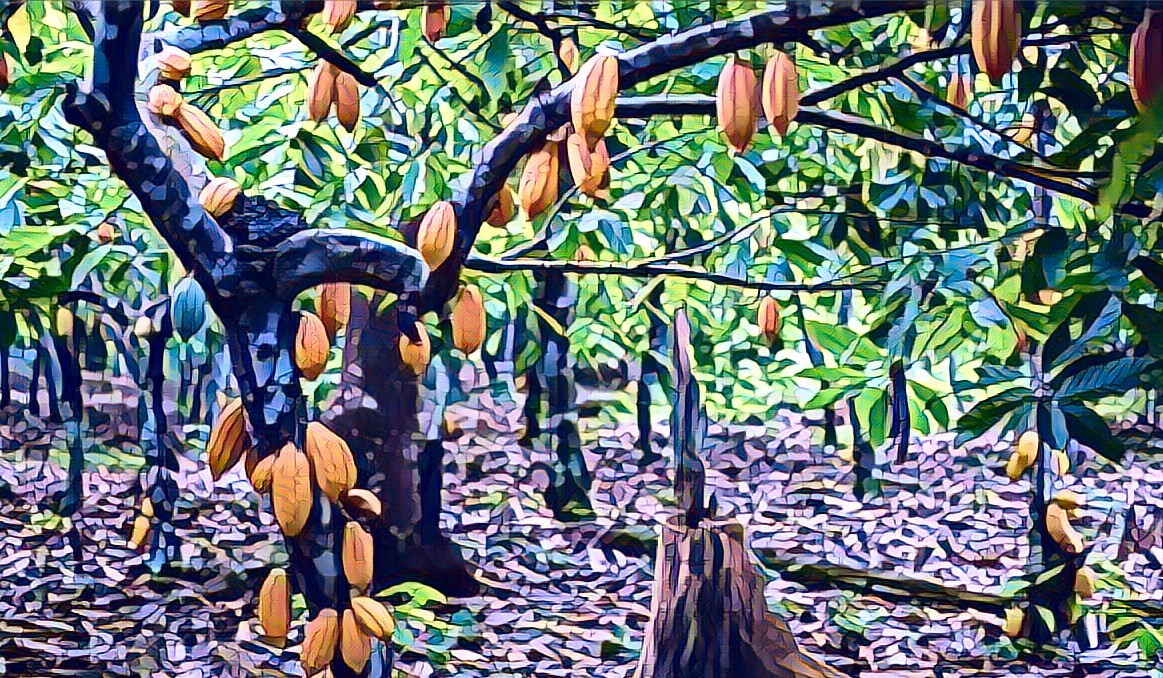In a heated dispute, the Ghana Cocoa Board (COCOBOD) has strongly criticized the Forestry Commission for destroying 70 acres of cocoa farms in the Western North Region. The farms, located in Asuogya and Adabokrom, have been a source of livelihood for local farmers for over 40 years. Now, these farmers face the loss of their crops and livelihoods due to actions they believe are both unjust and illegal.
The conflict centers around whether the land in question is part of a protected forest reserve. The Forestry Commission insists that the land is indeed protected and therefore must be cleared of any illegal farming activities. However, the local farmers, supported by COCOBOD, dispute this claim. They argue that the land has been in their families for generations and that they have a legal right to continue farming there.
According to Prof. Michael Kwateng, who heads the Cocoa Protection Desk at COCOBOD, there have been previous court rulings in favor of the farmers. Court decisions in 1988 and 2016 affirmed the farmers’ rights to the land, which further complicates the Forestry Commission’s recent actions.
The farmers also allege that the Forestry Commission has not been consistent in its enforcement of the land’s protected status. They claim that the Commission has, in the past, accepted money from them in exchange for allowing them to continue farming. This practice, they say, has suddenly stopped, and the Commission has now moved to destroy their farms without offering any alternative solutions or compensation.
The farmers believe that the current economic hardships have made it difficult for them to continue paying the unofficial fees that were once accepted by the Forestry Commission. As a result, they suspect that the Commission’s recent actions are motivated by their inability to pay these fees rather than any genuine concern for environmental protection.
COCOBOD, which plays a crucial role in supporting cocoa farmers across Ghana, has stepped in to defend the farmers’ rights. Prof. Kwateng has condemned the Forestry Commission’s actions, arguing that they are not only unfair but also illegal. He pointed out that, according to the Economic Plants Protection Act of 1979, the destruction of such farms can only be authorized by a court order, which the Forestry Commission failed to obtain.
During a recent visit to the affected farms, Prof. Kwateng expressed his concern over the situation and promised that COCOBOD would escalate the matter. He stated that the issue would be taken to COCOBOD’s legal department, where they plan to seek compensation for the farmers whose livelihoods have been destroyed.
For the farmers, the destruction of their cocoa farms is nothing short of a disaster. Cocoa farming is not only their primary source of income but also a way of life passed down through generations. The loss of 70 acres of mature cocoa trees, some of which have been cultivated for decades, represents a significant economic blow to the community.
Many of these farmers are now left wondering how they will support their families and maintain their livelihoods. The destroyed farms were expected to produce cocoa for many years to come, providing a steady income for the farmers and contributing to the local economy.
Despite COCOBOD’s efforts to address the issue, tensions remain high between the farmers and the Forestry Commission. The situation has not yet been resolved, and the farmers continue to face uncertainty about the future of their remaining land.
Prof. Kwateng questioned why the Forestry Commission allowed the farmers to cultivate the land for over 40 years without taking action if it was indeed a protected forest reserve. This inconsistency has further fueled the farmers’ frustration and mistrust.
As the dispute escalates, the farmers and COCOBOD are looking to the legal system for justice. The outcome of this conflict could set a significant precedent for how land disputes between local communities and government agencies are handled in the future.
COCOBOD’s involvement highlights the importance of protecting the rights of farmers who contribute so much to Ghana’s economy through their hard work in the cocoa industry. For now, the farmers in Asuogya and Adabokrom can only hope that their voices will be heard and that a fair resolution will be reached.
The battle over these 70 acres of land is not just about the cocoa trees; it’s about the livelihoods of families who have relied on this land for generations. The farmers are determined to fight for what they believe is rightfully theirs, and COCOBOD is standing by their side, ready to take the matter to court if necessary.
Source: Ghana Web




